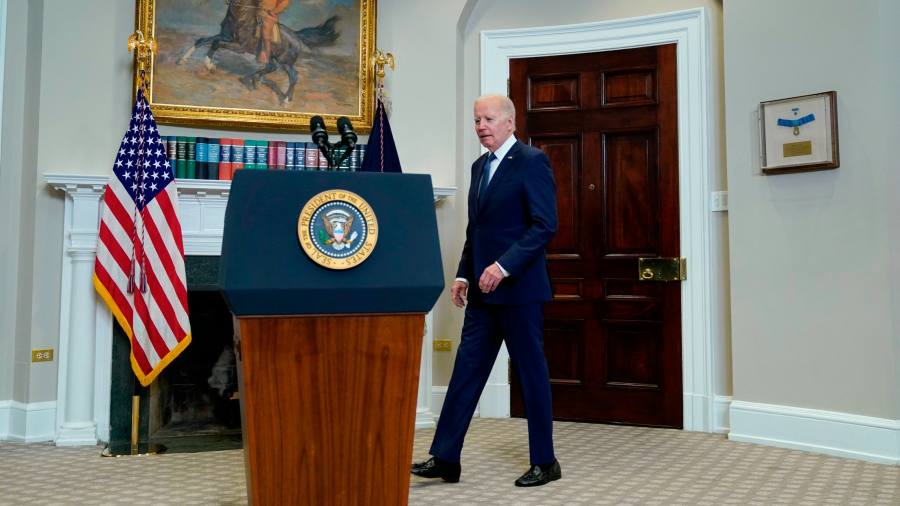The bipartisan deal agreed by US president Joe Biden and Republican House Speaker Kevin McCarthy has one main purpose: to stop America from defaulting on its debt in early June, when the Treasury is projected to run out of cash to pay all its bills. Here are the key provisions of the fiscal pact as it heads to Congress for voting.
Debt limit
The legislation raises the US’s $31.4tn debt ceiling for two years. Technically, it is a suspension of the borrowing limit until 2025, but the effect will be the same, removing the threat of a self-inflicted default until at least after next year’s US presidential and congressional elections.
Spending
The deal applies to domestic discretionary spending, setting caps for the next two years. In the 2024 fiscal year, spending levels will have to be flat, and they can only rise by 1 per cent in the 2025 fiscal year. Republicans had wanted deeper cuts for longer but still argue such fiscal restraint is significant. Notably, the spending limits do not include the defence budget or outlays for Social Security, the government pension scheme, or Medicare, the government healthcare scheme.
Social safety net
The deal includes some changes to eligibility criteria for anti-poverty programmes — a key Republican demand. The deal raises the maximum age at which recipients with no dependants will need to meet stricter work requirements to be eligible for food assistance from 49 to 55. But Democrats secured an expansion of eligibility to include homeless people and veterans to offset the hit.
Energy and environment
The deal preserves the sweeping clean energy tax credits from the Inflation Reduction Act that Republicans tried to gut. But it includes a reform of permitting rules designed to speed up environmental reviews for key energy infrastructure projects.
The deal also includes a provision to expedite completion of the controversial Mountain Valley Pipeline, meant to shuttle gas between Virginia and West Virginia, which has faced intense opposition from environmentalists but was backed by Joe Manchin, the influential Democratic senator.
Tax collection funding
The legislation cuts a small fraction of the extra funding for the Internal Revenue Service, which was passed last year in order to crack down on tax evasion by wealthy households and big businesses but triggered a conservative uproar. While this reduces spending over the short term, it could increase deficits in the long run.
Read the full article here




